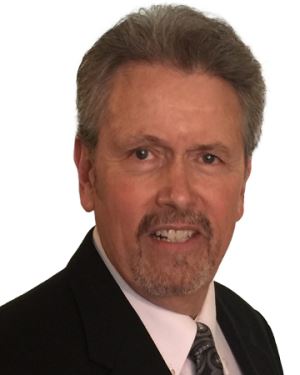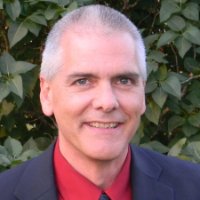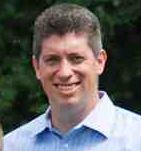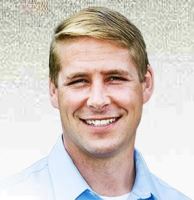
Scott Bradley – Convention of the States
Podcast: Download
Subscribe: Apple Podcasts | RSS | More
Are you confused when you hear people talk about the Convention of the States? If you want to become educated on what it is and why it’s being promoted, you’ll really enjoy our show today.
Today we get to talk with Scott Bradley. Scott has a doctorate in Constitutional Law. He’s an author and ran for vice-president in 2016 and is an expert on all things Constitutional.
This is a longer show than normal, but it’s filled with information you need to know if we want to preserve our nation!





7 Comments
margery ripley
using the term CON CON an obvious shortening of the term Constitutional Convention,, shows me your willingness to deceive the public for whatever your ulterior motive is. You know as well as i do that the CONSTITUTION is not in jeopardy from having ME instead of CONGRESS propose an amendment. It is very sad that you do not trust your fellow Americans OR you just care more about the insiders than WE THE PEOPLE
John Blazek
Margery, did you listen to the presentation?
I was a staunch CoS supporter. I’ve campaigned for CoS.
And, Dr Bradley brings up some very valid points, which the CoS project has not shared with us.
Calling it a Constitutional Convention or a Con-Con is no less deceptive than calling it a Convention of States.
A CoS *IS* a ‘limited’ Constitutional Convention. And the attendees WILL have the power and authority to do whatever they want. The first thing Congress will do is give them immunity from state laws while they are acting as delegates to the convention. Dr Bradley isn’t saying the convention ‘will’ be a run-away convention. He is saying there is nothing to prevent it.
It really is worth listening to his views.
Jim Rowe
Scott Bradley is wrong to say that Article V of the U.S. Constitution is a Constitutional Convention. If you read Art. V, you only see the phrase “for proposing amendments” and no other purpose. He then tries to impose a definition from Black’s Law Dictionary that includes “framing, revising or amending” a constitution and out of context says “I have proved my point that it is a Constitutional Convention”. That definition includes an “open” convention and lumps it with a “limited” (Article V) convention. If he would always keep the modifier “limited” with “Constitutional Convention”, I might agree, but otherwise he is wrong. Additionally the Florida Law Review, May 2013, Vol. 65, Num. 3 by Robert G. Natelson, pg 678 says that of the 39 delegates who signed the U.S. Const., only 3 could have been said the exceeded their powers as delegates. The Confederation Congress didn’t call the Philadelphia Convention but the states did. This article points out that there were 32 multi-colony and multi-state conventions prior to the U.S. Constitution being enacted, so that the Art. V concept comes from these gatherings. The problem is not only Congress but the Supreme Court improperly “interpreting” the Constitution. I will continue to pray for the country to turn back to God in Christ but I don’t yet see Art. V being out of the question (though I understand your point about chicanery).
John Blazek
Jim, As someone who campaigned FOR the CoS project, I am curious to learn more. Would you point me to where the words “an no other purpose” appear in the Constitution regarding Article V? Thanks.
John Blazek
Jim,
You said ” If he would always keep the modifier “limited” with “Constitutional Convention””
While I agree with your call for semantics. I am curious as to exactly what ‘limits’ you believe will be imposed.
Article V says “Congress -shall call- a convention for proposing amendments”
Just as you are requesting that Dr Bradley be accurate, I must insist that you also be accurate. Article V does NOT state that Congress must call a convention ‘subject to any limitations included by the several states in their request to Congress to call said convention’.
a) Clearly, Congress will be the convening authority, on that there really can be no question.
b) Congress, in making the call, can impose any, or no, restrictions on the types of amendments proposed. Given that one item on the states’ agenda (for example) is federal term limits, Congress would be silly to convene a convention that prohibited any such amendment because that would clearly be in contradiction to the call being made by the states. However, given that a group in Hawaii is supporting the CoS project based on a desire to repeal the 2nd amendment, where in Article V is Congress restricted in their call subject to limitations requested or suggested by the several states?
c) Given that, historically, Congress has granted immunity to both themselves and delegates, when traveling to/from sessions/conventions, what leads you to believe that Congress, as the convening authority for this convention, would not also grant immunity to any/all state delegates? If they do that, any state laws binding, restricting or limiting the actions of their respective delegates would be rendered moot.
d) Are you aware that Congress has, on several recent occasions, ask the Congressional Research Service to investigate their limitations regarding calling a Convention for the purpose of proposing amendments?
e) Have you considered that Article V requires Congress to call the convention and Article I, Section 8 – grants Congress full authority/power to call the convention and to set it up ‘as they see fit’?
Jim, until a week ago, I was a very strong proponent of the CoS project. Now that a number of things have been brought to light – which the CoS project was not disclosing – I’ve changed my position.
Project CoS is entrusting the same politicians to ‘fix’ the problem that ‘broke’ the system in the first place.
We-The-People already have it in our power to get (e.g.) a term limit amendment – or to impose term limits for ourselves. We have the power of the ballot.
The logic for calling a convention is that:
A) Congress won’t propose the amendments we want.
B) The People won’t vote out their life-time Congressmen and Senators and install good candidates who will propose them.
But, in reality, while we will be forcing Congress to take action – it will be Congress who is ultimately in charge of the Convention. Nothing in Article V suggests or demands anything to the contrary.
We will be forcing Congress to take action – we will be handing them a shield to hide behind – and anything that is proposed at the convention can be blamed on the convention, not on Congress.
And, once those amendments (e.g. to repeal 2A) are proposed at the convention, what evidence suggests that they won’t also be ratified?
The ratification process has been changed before – check your history. Amendments that are contrary to the good of the country have been passed before (e.g. 16th, 17th 18th)
Dr Bradley isn’t saying that the CoS (as a Con-Con) would absolutely run-away and rewrite the Constitution. He is saying that the ‘limitations’ which project CoS insists would prevent Congress from taking over – are not valid and are not supported by the Constitution.
We will be asking the same people who broke the system, and who ignore the Constitution now, to fix the problem. We are taking the lazy way out – instead of proactively unseating those elected officials. The lazy way out never ends up where you anticipate it will.
Dave Bishop
Sounds an awful lot like this is in defense of allowing limitless terms for your friends in congress. You know as well as I do that a limited convention as proposed by the Florida legislature is perfectly safe for our constitution!
John Blazek
David,
Given that Congress will be the acting authority in calling the convention, and given that Congress has historically passed federal laws that protect and grant immunity to delegates – why do you believe that any specific state-imposed limitations or restrictions on the delegates wouldn’t be overturned by Congress and/or that Congress won’t simply grant blanket immunity to all delegates when traveling to/from the convention and for all actions taken by those delegates when acting as delegates at the convention?
I was a staunch activist for the CoS project until I saw Dr Bradley speak (in person). He pointed out quite a few things that the CoS project has not been telling us. Rather than declare that the Call proposed by Florida is “perfectly safe”, I recommend you do some of your own research.
If you are confident in the process, then you have nothing to fear from looking for holes in the CoS claims. And, quite possibly, you have your 2nd amendment rights to save.